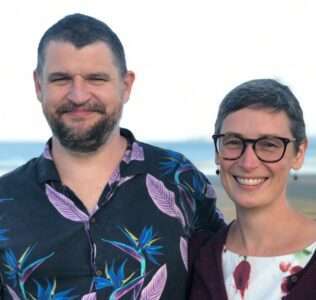Twenty-three NGOs are jointly urging the EU and European countries to work together to put into action their refugee response commitments in light of the crisis in Ukraine. This call comes ahead of EU justice and home affairs ministers meeting today to discuss the EU’s support for people fleeing the crisis in Ukraine.
The statement calls on the EU and EU countries to coordinate effective responsibility sharing which incorporates lessons learned from the EU’s previous migration response. This comes against the backdrop of more than 3.7 million people fleeing Ukraine as of Friday 25 March, most of whom are in neighbouring countries such as Poland, Moldova and Romania. Many of these countries are reaching their limit in how many people they can receive. EU countries now need to rapidly increase their resources and step up swift, safe and orderly transfers across the EU to make sure we do not see a repeat of people spending prolonged periods in refugee camps, unable to access their rights such as going to a doctor and vulnerable to many risks such as trafficking.
Stephanie Pope, Oxfam EU migration expert, said
“The speed at which the EU and EU countries worked together to adopt new rules, giving Ukrainian people the right to live and work in the EU for three years, coupled with the overwhelming support from European people, is commendable. It marks a turning point in the EU’s migration response.
“It is now time for the EU and EU countries to work together to put into practice their commitments. People fleeing Ukraine must be able to reach European countries in a safe way. Europe must step up the coordination and facilitation of swift, safe and orderly transfers of people from neighbouring countries, including non-EU states such as Moldova, to EU countries. This, together with ensuring the provision of an adequate and dignified reception response will allow all people fleeing Ukraine, be they Ukrainian nationals or not, to access their rights and live in safety.”
Notes to editors
Today, EU home affairs ministers met in Brussels in the format of the Extraordinary Justice and Home Affairs Council to discuss European coordination for the reception of people fleeing the crisis in Ukraine.
Read the joint statement and list of signatories including Oxfam, Action Aid International, Amnesty International, Care International, and Human Rights Watch.
The joint statement calls for:
- The EU and Member States to work together to coordinate and facilitate safe and orderly transfers to and across the EU. This includes working with national airlines, bus and railways to provide direct travel routes free of charge for people fleeing, giving priority to people’s preferences in which EU country they want to live in, quick and swift registration in languages applicants understand, and special measures for those with vulnerabilities including survivors of trafficking, those with disabilities, unaccompanied children, etc.
- Coordination between national authorities and service providers. A central EU Relocation Coordinator’s office is needed to coordinate EU responsibility sharing by linking up the relevant stakeholders and ensuring information is shared efficiently between national authorities on reception capacity and support needs, such as guardianship for unaccompanied children. The Solidarity Platform could be used to facilitate this exchange. EU countries should appoint national coordinators to act as focal points and coordinate at the national level.
- Monitoring of rights and the inclusion of civil society. The EU should mandate EU bodies such as the EU Fundamental Rights Agency and the EU Asylum Agency to act as monitors to ensure people have access to EU territory, safe and orderly transfers and are able to claim their rights under the Temporary Protection Directive and asylum procedures. People fleeing Ukraine and civil society should be able to report any infringement of rights to the EU Commission including through regular, formalised exchange.
- EU guidance on groups with vulnerabilities: The EU must develop guidance specific on transfers of people with vulnerabilities e.g. those with disabilities, LGBTQI+ individuals, survivors of trafficking or other forms of exploitation, and unaccompanied children. Input from EU bodies (EU Agency for Fundamental Rights and the EUAA), international organisations (UNHCR and the IOM) and civil society must be included.
See photos for use here.
Latest figures as of 25 March 2022 show almost 3.7 million people have fled Ukraine, the overwhelming majority first arriving and seeking support in neighbouring states including Poland, Moldova, Romania, Slovakia and Hungary.
The EU has made new rules that grant people fleeing Ukraine the right to live and work in the EU for three years. This is the so-called Temporary Protection Directive. Its aim is to reduce pressure on national asylum systems and to allow displaced persons to access harmonised rights across the EU. Last Wednesday, the EU came out with a plan to implement these rules – making it easier to access the rights, like going to school, getting health care and finding jobs, through the new rules.
Oxfam has worked on migration and displacement within Europe since 2015. With our partner organizations we have assisted more than 280,000 people in Greece, Italy, Spain, and the Balkans. Together we have provided them with legal aid, protection, water and sanitation activities, and distributed food and non-food items such as blankets and clothes.






